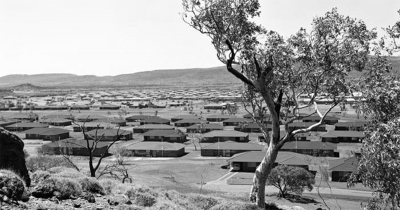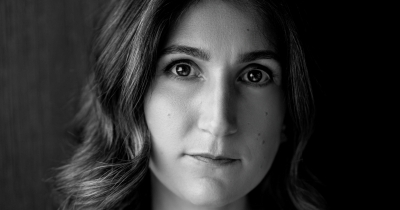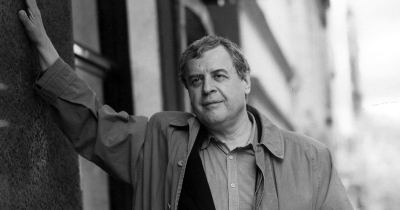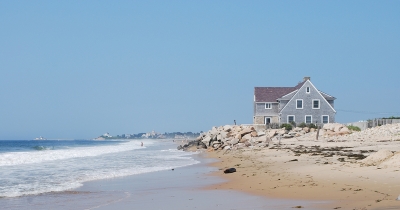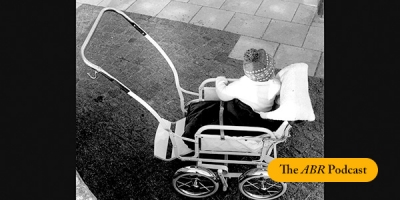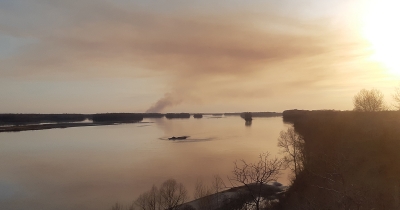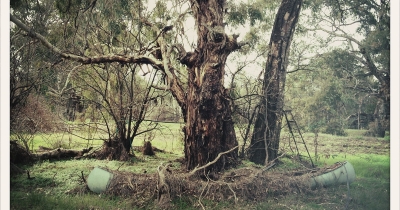Essay
Film | Theatre | Art | Opera | Music | Television | Festivals
Welcome to ABR Arts, home to some of Australia's best arts journalism. We review film, theatre, opera, music, television, art exhibitions – and more. To read ABR Arts articles in full, subscribe to ABR or take out an ABR Arts subscription. Both packages give full access to our arts reviews the moment they are published online and to our extensive arts archive.
Meanwhile, the ABR Arts e-newsletter, published every second Tuesday, will keep you up-to-date as to our recent arts reviews.
Recent reviews
To obliterate a mountain, one must first drill a series of holes 2.4 metres deep – in either a square or diagonal pattern, depending on the rock type and face condition. A crew moves in to load the holes with blasting agent, typically a mix of ammonium nitrate and fuel oil. Detonators and boosters are laid and an explosive cord is run over the mountain face. A fuse is lit. It explodes the detonator, which explodes the cord, which explodes the boosters, which explodes the blast mix, which in turn explodes the mountain.
... (read more)I have not told anyone that there is a small child growing in my bedside table drawer. The Ziplock bag containing E’s hair, a mass of tangled brown. A handful of baby teeth.
... (read more)Well-informed debate on national security, never more important than now, depends on reliable accounts of historical episodes, ones not distorted by latter-day political or diplomatic sensitivities. For more than a century, Australians have benefited from a tradition of official histories of the nation’s involvement in conflicts and peacekeeping operations, for which governments of all persuasions have given independent historians access to all relevant official records, publishing their works without political or diplomatic censorship.
... (read more)It was a busy day in February. I was in my office at Monash University, squeezing in some emails with one hand and a quick bite of lunch with the other. Yeah, a typical day for an academic. That’s when I came across an email sent to me by a PhD student from another Australian university who wanted to know about a research paper I had written. They sent me the title of the paper, the abstract, and the author list.
... (read more)It took me years to gather enough courage to introduce myself. Finally, deep into the Covid lockdown and a few months after receiving an award for my first collection of poems, I began my correspondence with Charles Simic by sending him an email to share the news, as if he were a family member, the one who would understand. He replied warmly, kindly, and in Serbian: ‘Draga Jelena …’
... (read more)We woke early that morning as the sun lit up the two shared bedrooms, three of us in each one. The thin, printed cotton curtains were no match for that kind of light. We were eighteen years old. It was the first weekend of our first semester at university, and we had come to the beach house armed with our readers and highlighters.
... (read more)In this week’s ABR podcast we hear from the runner-up of the 2023 Calibre Essay Prize, Bridget Vincent. Calibre judges Yves Rees, Peter Rose and Beejay Silcox praised Bridget Vincent’s ‘Child Adjacent’ for its wryness and compassion. They noted that it broadened our understanding of the family and interrogated the terrors and moral dilemmas of raising children in the climate crisis. Bridget Vincent is a Lecturer in English at the Australian National University. Listen to her reading ‘Child Adjacent’, published in the June issue of ABR.
... (read more)I feel like I need to come out every day. I’m pushing the stroller, fishing out the dummy, pointing out dogs, but this isn’t what it looks like. At the playground or the checkout, I take the nods and maternal solidarity, staying inside the parenting illusion until it feels slightly disingenuous. I am not the mother. I am an aunt instead, if ‘instead’ is even the right word. There are categories – infertile, childless by circumstance, childless by choice – and within these, more specific groups like the Birthstrikers, who are publicly delaying procreation until there is climate action. Being an aunt of the Anthropocene is none of these, and all of them at once.
... (read more)When Wheel left his jeans to soak in the bathroom sink one morning, he didn’t notice that the tap wasn’t quite turned off. He went out for the day and while he was gone, a clear, almost invisible, wire-thin needle of liquid continued to flow. It would have looked static, like an icicle, far from voluminous. But it was insistent, continuous. In his absence the trickle turned into a flood. It overflowed the sink and then the bathroom of the third-floor apartment. It crept silently down the hall into the bedroom and the built-in cupboards, blooming inside document boxes in search of absorbent substances. It was drawn through the diaries and notebooks where I, his partner of many years, had documented my adult life. The water seemed to soak my belongings specifically, as if it was coming for me, trying to wash me away. It left tea-coloured tide marks on my charcoal drawings and filled my shoes with puddles in the bottom of the wardrobe.
... (read more)In November 1984 when I left Queensland to come back to Victoria, Kathy de Bono, a friend from the Yoga school, followed me to Murwillumbah where I was catching the train. She told me that because my car was old she’d drive slowly behind me in case I broke down. Now my Lesley McGinley doesn’t look much, but it goes like the clappers. Out of mischief I flattened my foot when I’d crossed the Tweed, and Kathy soon became a speck in my rear vision mirror. When she reached Murwillumbah she said ‘I brought a packet of tissues in case you cried. Instead you’re all lit up and laughing.’
... (read more)
